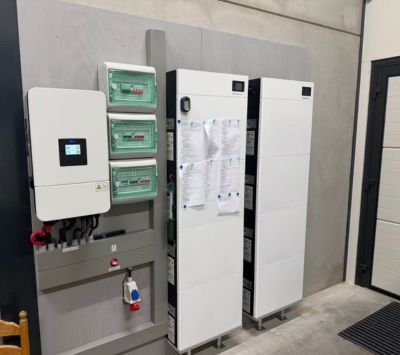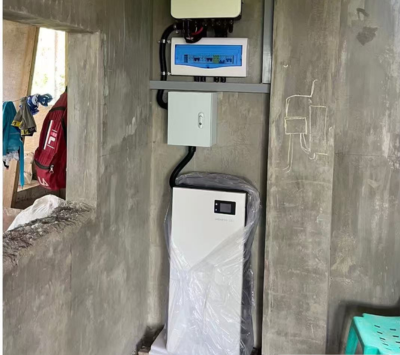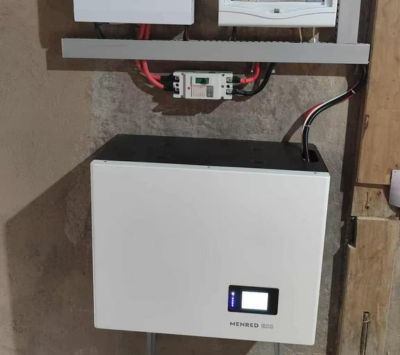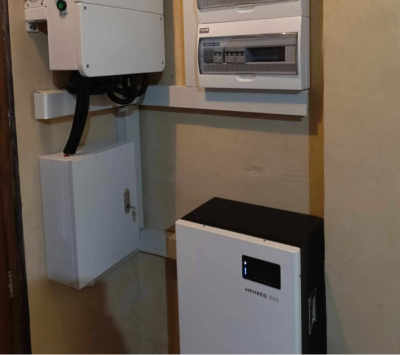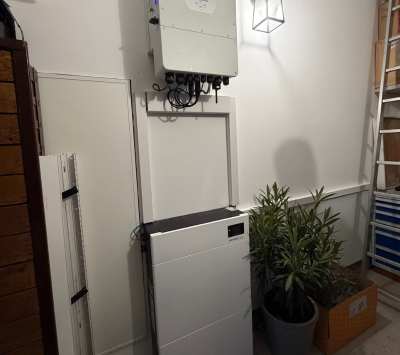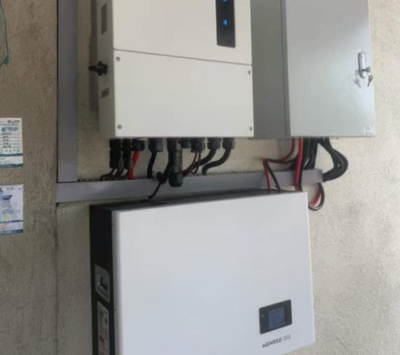As the world moves toward renewable energy and sustainable solutions, lithium-ion battery technology has emerged as a key player in energy storage. Among the most popular configurations, the 48V lithium-ion battery pack stands out due to its versatility, high performance, and adaptability to various applications. From powering solar energy systems to driving electric vehicles (EVs) and industrial equipment, 48V battery packs are becoming an essential component of modern energy systems.
This article serves as a comprehensive introduction to 48V lithium-ion battery packs, exploring their design, functionality, benefits, and applications.
What is a 48V Lithium Ion Battery Pack?
A 48V lithium-ion battery pack is a modular energy storage solution made up of multiple lithium-ion cells connected in a series or parallel configuration to achieve a nominal voltage of 48 volts. These packs are typically designed with the following components:
- Battery Cells: The core of the pack, often using chemistries like Lithium Iron Phosphate (LiFePO4) or Nickel Manganese Cobalt (NMC).
- Battery Management System (BMS): A critical feature that monitors and manages the battery’s performance, ensuring safety and efficiency.
- Thermal Management: Systems to control temperature and prevent overheating, which can damage the battery or cause safety issues.
- Casing and Connectors: The physical structure that protects the battery and allows for easy integration into systems like solar inverters or electric motors.
The 48V configuration is ideal for balancing power output and energy efficiency, making it a popular choice for a wide range of applications.
Key Features of 48V Lithium Ion Battery Packs
High Energy Density:
Lithium-ion technology allows for compact and lightweight battery packs with high energy storage capacity, enabling long operational durations.Scalability:
These battery packs can be connected in parallel to increase energy capacity, making them ideal for residential, commercial, and industrial energy systems.Fast Charging Capability:
A 48V lithium-ion battery pack can be charged quickly compared to traditional lead-acid batteries, ensuring minimal downtime for the user.Long Lifespan:
With a cycle life of up to 2,000–5,000 cycles or more, 48V lithium-ion battery packs provide years of reliable performance, reducing the need for frequent replacements.Integrated Safety Features:
Equipped with BMS, these batteries are protected against overcharging, over-discharging, short circuits, and overheating, ensuring safe operation.Wide Operating Temperature Range:
Lithium-ion batteries perform well in a broad temperature range, typically from -20°C to 60°C, making them suitable for various environments.
How Does a 48V Lithium Ion Battery Pack Work?

A 48V lithium-ion battery pack operates by storing electrical energy generated from a power source—such as solar panels or an alternator—and releasing it as needed. Here’s how the process works:
Charging:
The battery pack is charged using DC electricity from a compatible power source (e.g., solar charge controller or EV charger). The BMS regulates the charging process to prevent overcharging.Energy Storage:
The lithium-ion cells inside the pack store energy through chemical reactions. High energy density ensures more power is stored in a smaller space.Discharging:
When energy is needed, the battery pack delivers DC power to connected devices or systems. The BMS monitors discharge rates to optimize performance and prevent excessive energy drain.Energy Conversion:
In applications like solar systems, a solar inverter converts the DC energy stored in the battery pack into AC power, which is then used by household appliances or industrial equipment.
Benefits of Using 48V Lithium Ion Battery Packs
Higher Efficiency
- Lithium-ion battery packs have an efficiency of 90–95%, compared to lead-acid batteries, which operate at 70–80% efficiency. This means more stored energy is usable, reducing waste.
Lightweight and Compact Design
- A 48V lithium-ion battery pack is significantly smaller and lighter than its lead-acid counterparts, making it easier to install and transport.
Low Maintenance
- Unlike lead-acid batteries, which require regular maintenance (e.g., water refilling), lithium-ion packs are virtually maintenance-free.
Faster Charging
- The ability to charge quickly means less downtime for users, especially in applications like electric vehicles or backup power systems.
Longer Lifespan
- With a lifespan of up to 10–15 years, these battery packs provide long-term reliability and reduce the cost of ownership.
Eco-Friendly
- Lithium-ion battery packs are more environmentally friendly than lead-acid batteries due to their higher efficiency and recyclability.
Applications of 48V Lithium Ion Battery Packs
Residential Solar Energy Systems:
- A 48V lithium-ion battery pack is commonly used in home solar setups to store excess solar energy generated during the day for use at night.
- It provides backup power during grid outages, ensuring uninterrupted energy supply.
Electric Vehicles (EVs):
- From electric bicycles to golf carts and low-speed EVs, 48V battery packs are the backbone of modern electric mobility solutions.
- Their lightweight design and high power output enhance vehicle efficiency and performance.
Commercial and Industrial Applications:
- Used in forklifts, automated guided vehicles (AGVs), and robotics for warehouses and factories.
- Provides backup power for data centers and telecom towers.
Off-Grid Systems:
- Perfect for remote locations without access to the main power grid. A 48V lithium-ion battery pack, paired with solar panels, enables energy independence.
Marine and RV Applications:
- Offers a reliable energy source for boats and recreational vehicles (RVs), powering appliances, lighting, and navigation systems.
Challenges and Solutions
While 48V lithium-ion battery packs offer numerous advantages, there are a few challenges to consider:
Higher Initial Cost:
- Lithium-ion batteries are more expensive upfront compared to lead-acid batteries.
- Solution: Long-term savings due to higher efficiency, longer lifespan, and lower maintenance costs offset the initial investment.
Temperature Sensitivity:
- Extreme temperatures can affect battery performance.
- Solution: Advanced thermal management systems ensure optimal performance in harsh environments.
Recycling and Disposal:
- Proper recycling of lithium-ion batteries is critical to reduce environmental impact.
- Solution: Growing recycling programs and technologies are making lithium-ion battery recycling more accessible and efficient.
Choosing the Right 48V Lithium Ion Battery Pack
When selecting a 48V lithium-ion battery pack, consider the following factors:
- Capacity: Measured in ampere-hours (Ah) or kilowatt-hours (kWh), choose a battery pack that meets your energy needs.
- Battery Chemistry: LiFePO4 batteries are preferred for safety and longevity, while NMC batteries offer higher energy density.
- Compatibility: Ensure the battery pack is compatible with your inverter, charger, and other system components.
- Cycle Life: Look for a high cycle life to maximize the battery’s lifespan.
- Certifications: Ensure the battery pack complies with safety standards like UL, CE, and RoHS.
Future of 48V Lithium Ion Battery Packs
The future of 48V lithium-ion battery technology is promising, with ongoing innovations such as:
- Solid-State Batteries: Offering higher energy density and improved safety.
- AI-Driven Battery Management Systems: Real-time optimization of performance and lifespan.
- Cobalt-Free Chemistries: Reducing environmental concerns and lowering costs.
- Wireless Energy Transfer: Enhancing convenience for EV charging and home energy systems.
Conclusion
The 48V lithium-ion battery pack is a game-changer in energy storage, offering unmatched efficiency, durability, and versatility. Whether for solar energy storage, electric vehicles, or industrial applications, these battery packs provide reliable performance and long-term value. As technology continues to evolve, 48V lithium-ion battery packs are set to play an even greater role in shaping a sustainable energy future.
Investing in a 48V lithium-ion battery pack today is not just a choice for improved energy efficiency—it’s a step toward a cleaner, greener tomorrow.

